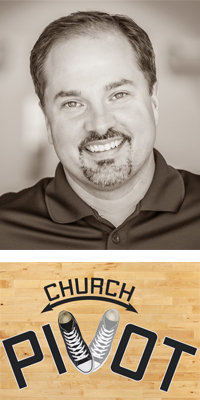 by Case Thorp
by Case Thorp
Moderator of the 39th General Assembly
Last month, pastors of Romanian heritage in Illinois declared they will begin gathering for corporate worship despite the governor’s orders. Meanwhile, they filed a federal lawsuit to challenge the orders in defense of religious liberty. Some Presbyterian pastors in my own denomination share similar convictions, while others have said they will delay reconstituting on Sundays for worship. Motives range from fear of the coronavirus’ advance to being blamed for its spread. One mother in my own congregation shared another valid take concerning coming back to corporate worship: “We do not want our four-year-old son to have to wear a mask or see his little friends or their parents hidden behind masks for the sobering image it would see her into his memory.”
Whatever practice a church embraces for restarting Sunday morning worship, this global pandemic will be a turning point for the future of Christianity.
Pastor Chad Scruggs at Covenant Presbyterian Church (PCA) in Nashville recently reminded his congregation that when it comes to opening up for Sunday worship they have a “fixed theology, but flexible methodology.” Pastor Scruggs recognizes disruptive events like this one challenge methodologies, but do not change the core beliefs and convictions of Christians. As seen in history, individual churches either died out or shifted and thrived through such calamities as the black plague, enemy invasions, or governmental oppression.
Yet, the methodology of most American churches is an epidemic of its own. For the last generation, scholars and a minority of practitioners have questioned the amount of energy and resources that go into Sunday morning worship. Too many churches operate, so they think, as an attraction among many in a community. Rather than the beach, a theme park, your backyard, or little league baseball game, if church is an entertaining enough experience, you’ll come.
Certainly, gathered worship on the day of Christ’s resurrection is central to the Christian experience since the first century, and will be theologically important into the future. Yet, in many churches who thought they were evolving well with the times, Sunday morning corporate worship has become an overproduced performance mimicking the cultural attention we place on lights, cameras, and action. The Sunday event has become an expensive, less-than-average vehicle for discipleship, and a lightning rod for criticism as pastors are seen in slick, overproduced settings following more the ways of the famous than Jesus. Take this away, and many pastors feel naked and out of the driver’s seat. It reveals a reality many church leaders have forgotten: there is more to the church than going to church.
The scale at which the Sunday morning worship service dominates a church’s methodology is being radically disrupted with stay-at-home orders. Pastors are flummoxed with next steps in reopening, thinking that it’s the only move they have. But is it? Is returning to the event-driven, performance-esque Sunday morning corporate worship service the best way to be the body of Christ in this pandemic—and in the 21st century?
Allen Hirsh, an Australian theologian and leading missiologist, recently compared this moment for churches to the game of chess. He provides what he calls a working parable in which the sermon, the very center of the Sunday event, to the queen on a chessboard. We think she is an all-powerful gamepiece and the best reason the game is won. Hirsch says too many churches have over-relied for too long on their queen, and due to lockdown, “now the queen is taken out. They don’t know what the other pieces can do.”
Here he brings the parable full circle with both a vision and a challenge for how churches use this global disruption to reconstitute themselves in a much more effective way. Chess masters will coach new students to play chess without the queen so that they learn the power and potential of all the other chess pieces. Hirsch suggests taking away our queen as Christians is the best thing that could have happened to the church because it will force the issue of effective discipleship, transformative mission, and intimate, authentic outreach. He concludes, “What you were going to do is you’re going to learn what all the other elements of the chess table can do on the chessboard, and then you put the queen back in. At that point you’ve actually learned to become a champion without over-relying on a singular function.”
The opportunity before the leaders of the church offered by coronavirus is to learn to play the game relying on the other moves on the board: effective conveyance of the faith from one person to another, truly teaching biblical literacy rather than ethical vignettes, sound and clear theology, spiritual habits that shape the rhythm of a flourishing life, transformative works of benevolence in a community that last and they are witness to God’s common grace, and a worship expression build not on performance and production, but on intimacy and confession. May church leaders not waste the opportunity of this crisis, and perhaps usher in yet another great reformation of the church.
Case Thorp is a Teaching Elder in the Presbytery of Florida and the Caribbean. He serves as Senior Associate Pastor of Evangelism for First Presbyterian Church in Orlando.
